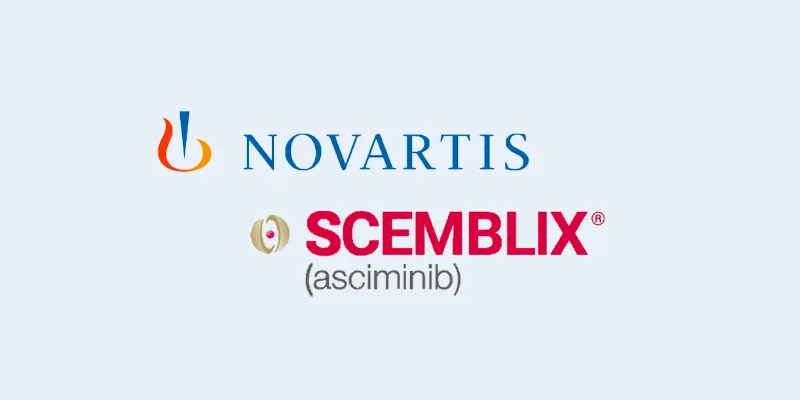Scemblix Outperforms Standard TKIs in Phase III Chronic Myeloid Leukemia Trial

8 January 2024
Novartis announced positive results from ASC4FIRST trial, where Scemblix showed superior efficacy and tolerability over standard TKIs in treating chronic myeloid leukemia. Scemblix demonstrated higher major molecular response rates and fewer adverse events, offering a promising new treatment option.
Novartis has shared new data on Scemblix (asciminib) from the Phase III ASC4FIRST trial for the treatment of chronic myeloid leukemia (CML). Scemblix has demonstrated superior efficacy over standard-of-care tyrosine kinase inhibitors (TKIs). The trial, a head-to-head comparison between Scemblix® and first- and second-generation TKIs, marked a significant stride in CML management, offering new hope to patients.
The trial, which targeted newly diagnosed patients with Philadelphia chromosome-positive chronic myeloid leukemia in chronic phase (Ph+ CML-CP), met its primary endpoints. Scemblix showed a higher major molecular response (MMR) rate at week 48 compared to the standard TKIs, including imatinib, nilotinib, dasatinib, and bosutinib. This finding is not just clinically meaningful but also statistically significant, indicating a clear advantage of Scemblix in achieving molecular response goals in CML patients.
Prof. Tim Hughes, from the South Australian Health & Medical Research Institute, emphasized the need for tolerable treatment options in CML, highlighting the balance between effective treatment and quality of life.
Scemblix® demonstrated a favorable profile in this regard, with fewer adverse events and treatment discontinuations compared to the standard TKIs. This is particularly significant, considering that intolerance and adverse events are major reasons for discontinuing TKI therapy. Currently, over 60% of newly diagnosed CML patients fail to meet 12-month molecular response goals, largely due to these challenges.
Dr. Shreeram Aradhye, President of Development and Chief Medical Officer at Novartis, underscored the chronic nature of CML and the necessity for treatments that are both efficacious and well-tolerated to support patient adherence. He pointed: “Given the chronic nature of their condition, patients often need to be on TKI therapy for many years, so treatment options that are well tolerated and highly efficacious are crucial to support adherence.”
The ASC4FIRST trial (NCT04971226) is a Phase III, multi-center, open-label, randomized study comparing oral Scemblix® 80 mg QD with investigator-selected first- or second-generation TKIs in 405 adult patients. The primary endpoints were to compare the efficacy of asciminib with the selected TKIs based on the proportion of patients achieving MMR at week 48. The study also assesses secondary safety and efficacy endpoints, including time to treatment failure and overall survival.
Scemblix® is the first CML treatment targeting the ABL myristoyl pocket. It is approved in over 60 countries for patients who have previously been treated with two or more TKIs and is also being studied across multiple treatment lines for Ph+ CML-CP. The ongoing trial, with its next data readout scheduled for week 96, will continue to assess the long-term efficacy and safety of Scemblix.
About Scemblix® (asciminib)
Scemblix® (asciminib) is a pioneering CML treatment targeting the ABL myristoyl pocket, designed for high specificity and reduced off-target effects, enhancing safety and tolerability. Approved in over 60 countries, including the US and EU, it treats adults with Ph+ CML-CP previously treated with two or more TKIs. In some regions, it's also approved for Ph+ CML-CP patients with the T315I mutation. Scemblix is a key option for those resistant or intolerant to existing TKI therapies, being studied in various treatment lines, both as monotherapy and in combination.











Comments
No Comments Yet!